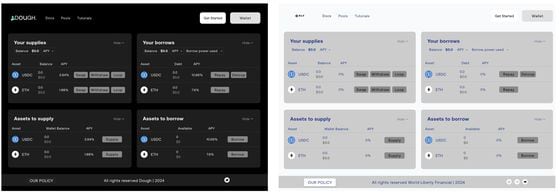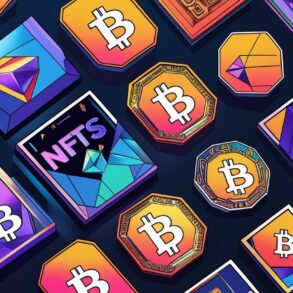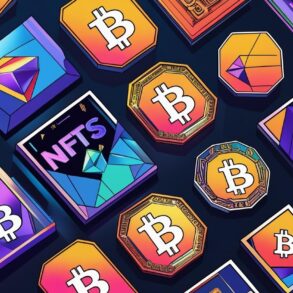Donald Trump and his sons have for weeks teased an upcoming cryptocurrency project, but they’ve been light on details in public.
Privately, though, the former U.S. president’s inner circle has been quietly shopping around a white paper for World Liberty Financial – and CoinDesk has obtained excerpts.
The document and other reporting describe a borrowing and lending service strikingly similar to Dough Finance, a recently hacked blockchain app built by four people listed as World Liberty Financial team members. Other participants include all three of Trump’s sons (including 18-year-old Barron, who is identified as the project’s “DeFi visionary”), financiers and e-commerce influencers.
According to a person familiar with the plans, the project will also include a new cryptocurrency: WLFI, a non-transferable governance token. A transfer restriction could make the asset difficult for speculators to trade.
World Liberty Financial “highlights the power of blockchain in an accessible way,” according to the white paper. Though the app isn’t ready for prime time, a review of a since-deleted codebase on GitHub shows that the project – at least in its early stages – appears to have lifted code directly from Dough Finance, which lost $2 million in July’s hack. It has not been confirmed whether later iterations of the app contain such earlier code, and there is no indication that any vulnerabilities in the Dough Finance code appear in the new project’s code.
Zachary Folkman and Chase Herro – listed in the white paper as World Liberty Financial’s head of operations and its data and strategies lead, respectively – built Dough Finance, a person familiar with the matter said. (Herro used to link to Dough Finance’s Telegram group in his bio on the messaging app, according to a screenshot reviewed by CoinDesk.) Octavian Lojnita, the project’s smart contracts lead, also previously worked on Dough Finance, according to his online resume. Boga, World Liberty Financial’s pseudonymous front-end developer, is listed as an author (under 0xboga) in Dough Finance’s source code.
A limited liability corporation for World Liberty Financial is registered to Folkman, who, along with Herro, is the co-creator of Subify, which bills itself as a censorship-free competitor to both Patreon and OnlyFans – both services that let customers pay content creators, with the latter skewing toward explicit content. Folkman previously registered a company called Date Hotter Girls LLC and posted seminars on YouTube on how to pick up women.
Herro, Folkman, World Liberty Financial and the Trump campaign did not respond to requests for comment.
Details about Trump’s foray into decentralized finance have been scarce up until now. Members of the Trump family teased that it was coming on social media, but they revealed little beyond the project’s name. When it was first announced last month, it was called The DeFiant Ones.
According to the white paper for the rebranded World Liberty Financial, the project will include a “credit account system” – built on decentralized finance (DeFi) platform Aave and the Ethereum blockchain – to facilitate decentralized borrowing and lending.
Governance tokens like WLFI generally allow their owners to participate in the management of the crypto project. In this case, the platform’s users “can suggest and vote on adding new DeFi lending markets or integrating new blockchains,” according to the white paper.
The white paper also says the product will feature an “easy-to-use interface for accessing WLFI as a ‘smart account’ or a brokerage.”
Previous efforts to create crypto brokerage services have seen mixed results. Companies like Voyager Digital, which offered brokerage services, fell into bankruptcy in 2022, costing customers significant chunks of money. More traditional financial firms have also made moves toward offering brokerage services to crypto clients, though they’ve so far refrained from getting deep into DeFi specifically.
The team behind World Liberty Financial
The project’s figurehead is Donald J. Trump, who has taken the title of “Chief Crypto Advocate.” His sons, Eric Trump and Donald Trump Jr. – who seem to be the driving force behind the project – are also involved as “Web3 Ambassadors.”
The project’s leadership team also includes people who aren’t in Trump’s family. In addition to Folkman, Herro, Lojnita and Boga, the project’s leadership includes long-time Trump friend and well-known property developer Steve Witkoff (“Institutional Investment”) and his son Zach Witkoff (“Intelligence”) and Alex Golubitsky (“Legal Counsel”).
Golubitsky and his legal partner, Gabriel Shapiro, run the crypto governance advisory MetaleX Pro. The firm has disclosed it is receiving 1.3% of World Financial Liberty’s upcoming token $WLFI.
Folkman and Herro, who also goes by “Chase Hero,” are longtime friends and business partners. In addition to their work with Subify, Herro and Folkman have operated so-called “mastermind groups” – essentially, private networking clubs with a steep price of entry – and sold online e-commerce courses.
 The similarities are remarkable between the user interfaces for Dough Finance, left, and now-deleted code from World Liberty Financial. (GitHub)
The similarities are remarkable between the user interfaces for Dough Finance, left, and now-deleted code from World Liberty Financial. (GitHub)Herro has appeared as a guest on popular podcasts including YouTuber Logan Paul’s podcast “Impaulsive,” where he has discussed his past stints in prison for drug-related charges, and how he got rich as a “self-made businessman.” Paul is currently being sued in a class action lawsuit accusing him of orchestrating a rug-pull with his failed CryptoZoo project.
Court records show Herro owns a 34-foot boat called “Clickbait.”
According to data from Open Corporates, Folkman, under the alias Zack Bauer, formerly operated the pick-up artist advice platform “Date Hotter Girls” with another individual, Rob Judge. During his work with Date Hotter Girls, Folkman taught “masterclasses,” including one on how to “Become the Ultimate Alpha Male.”
Beginning in 2015, Herro and Folkman started “The Watchers,” a Facebook page and YouTube channel with 2,280 subscribers dedicated to providing information about cryptocurrency and advice about entrepreneurship. The last video was uploaded four years ago. Herro formerly operated a crypto trading firm called “Pacer Capital,” which appears to no longer exist.
Courting crypto voters
The initiative is part of a significant shift for Trump, who during his presidency expressed skepticism toward digital assets and derided Bitcoin (BTC) as “based on thin air.” Now, with a campaign promise to make the United States the “crypto capital of the planet,” the former president is aiming to solidify his appeal with an industry that has accounted for more than half of all corporate campaign spending in this election cycle.
It comes after the former president sold multiple waves of Trump-themed non-fungible tokens (NFTs), some of which gave purchasers raffle tickets to attend a dinner with him or similar rewards. He just released the fourth batch.
Cryptocurrency companies have dumped $119 million into the 2024 election cycle, outspent only by the fossil fuel industry. Two of the top-10 corporate spenders in this election are Coinbase and Ripple, with Coinbase securing the No. 1 spot.
The crypto industry has also made itself felt through targeted funding spent by Fairshake, a super political action committee, and its affiliated PACs, claiming 26 wins in the 2024 primaries.
Trump and other Republicans have sought to argue that they will nurture the crypto industry, replacing unpopular regulators and allowing entrepreneurs to launch products without fear of lawsuits or subpoenas from agencies like the Securities and Exchange Commission. Democrats have been more split on the issue, with some prominent lawmakers like Sen. Chuck Schumer promising legislation to clarify the rules of the road but others remain hostile to digital assets. Vice President Kamala Harris, the Democratic nominee, has not said anything publicly about crypto or how she views the issue.
Nikhilesh De contributed reporting to this story.
This post was originally published on this site be sure to check out more of their content







